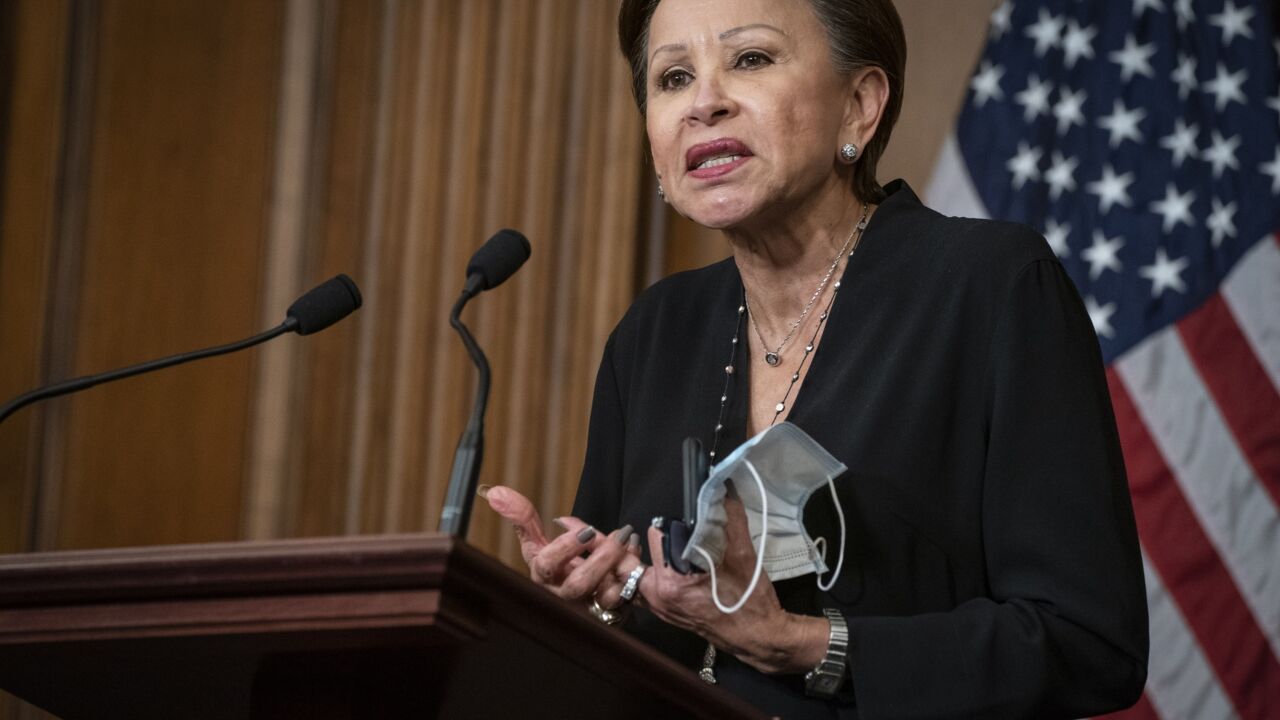-
Though the Paycheck Protection Program is winding down, the Small Business Administration has prolonged several other pandemic relief programs. Community banks can help local businesses sort through their options.
July 12 Maryland Bankers Association
Maryland Bankers Association -
The Small Business Administration’s sluggish pace in forgiving the biggest Paycheck Protection Program loans is straining relations between banks and some borrowers.
May 20 -
The Paycheck Protection Program has about $8 billion remaining, with those funds earmarked for community development financial institutions, minority depository institutions and other mission-driven lenders.
May 5 -
With the Paycheck Protection Program likely winding down at the end of the month, many lenders are seeing heightened demand for the Small Business Administration’s 7(a) and 504 loans.
May 3 -
The legislation, led by Sen. Ben Cardin, D-Md., would qualify many farmers, ranchers and self-employed Americans for more Paycheck Protection Program funds.
April 21 -
When it was launched a year ago, the program was criticized for glitches and a focus on larger borrowers. Since then technical improvements have been made, smaller loans have been prioritized, and other changes favored by lenders have been implemented.
April 13 -
A federal watchdog agency determined that Almena State Bank's push into government-backed loans, supported with high-cost wholesale funding, set it up for collapse when significant credit issues arose.
March 26 -
First Internet CEO David Becker used to be dismissive of the Small Business Administration. But after getting to know some of the borrowers during the pandemic — and after his bank collected hefty fees from selling 7(a) loans — he's become a convert.
March 17 -
By an overwhelming majority, the House approved a two-month extension of the Paycheck Protection Program, which still has almost $93 billion left to distribute.
March 17 -
The legislation would extend the Paycheck Protection Program for two months and give the Small Business Administration more time to remedy persistent system glitches that have delayed the processing of thousands of loan applications.
March 11 -
Legislators expressed concerns that thousands of pending applications are stuck in limbo just weeks before the Small Business Administration is legally required to stop accepting them.
March 10 -
Nonbanks had worried the end of the Paycheck Protection Program Liquidity Facility would hurt their ability to lend to small businesses. On Monday, the Federal Reserve announced the facility would be extended for three months.
March 8 -
Turnaround times on loans in the 504 program are stretching out for weeks as the Small Business Administration grapples with a spike in applications and responsibilities tied to the Paycheck Protection Program.
March 1 -
It would ignore technical glitches plaguing the entire Paycheck Protection Program and could end up delaying loans to larger borrowers who also need relief, bank executives and their trade groups say.
February 22 -
Banks have diverted resources from traditional Small Business Administration lending to make Paycheck Protection Program loans, but many are taking steps to rev up 7(a) and 504 lending once the PPP winds down.
February 12 -
The Los Angeles company agreed to buy $105 million of loans and a servicing portfolio that covers another $295 million in originations.
February 3 -
The number of Paycheck Protection Program loans to U.S. small businesses more than doubled in the third week of the latest round of pandemic relief aid, as Bank of America and JPMorgan Chase each processed more than $1 billion in funding.
February 2 -
Businesses owned by minorities and women got a head start this week in a new round of $284 billion funding, and early anecdotal evidence suggests stronger demand coming from these businesses.
January 15 -
First Bank in New Jersey, Northeast Bank in Maine and others have warmed to the idea of using software to streamline Paycheck Protection Program lending so that employees can be more hands-on with customers.
January 13 -
The pace of forgiveness for Paycheck Protection Program loans is expected to accelerate when the Small Business Administration issues guidance on additional steps meant to streamline the process.
January 13














